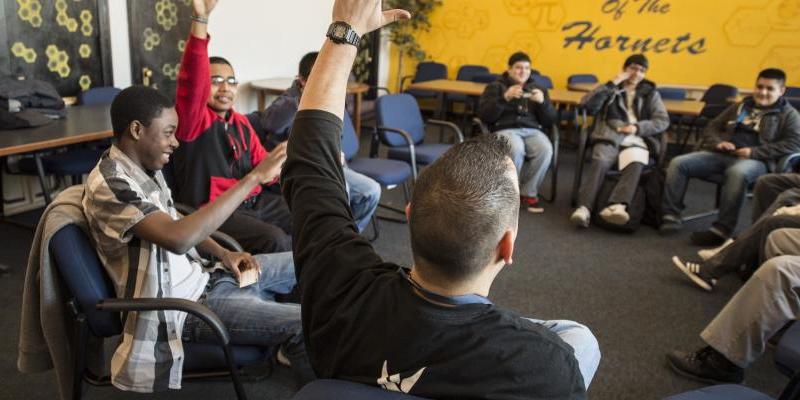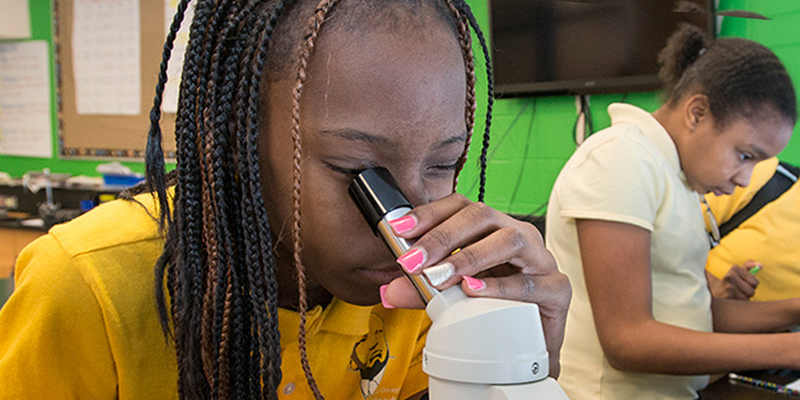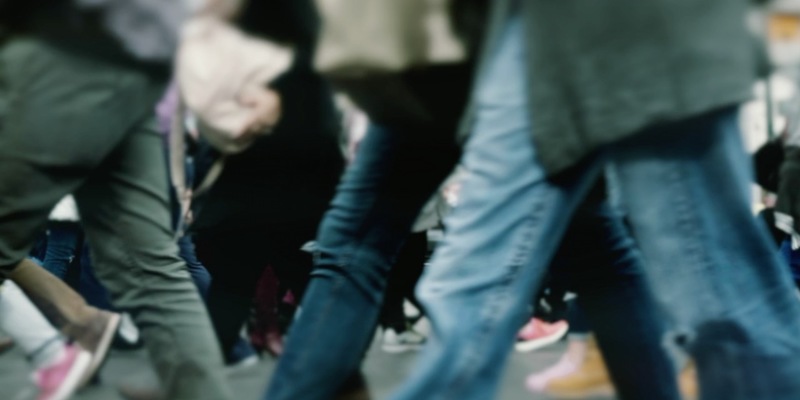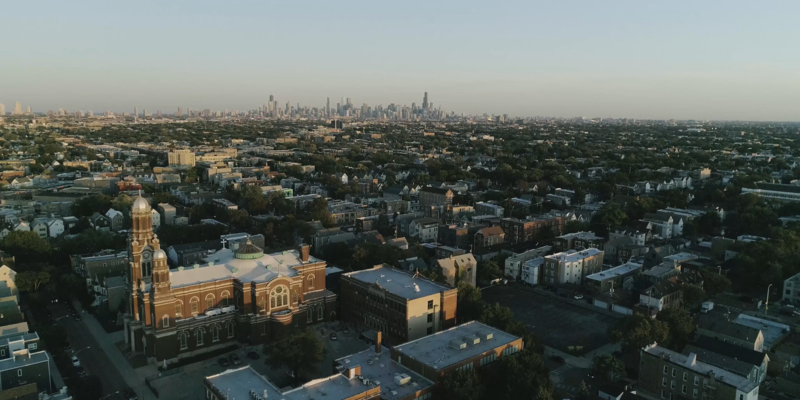Crime Lab New Results for Chicago-Based Youth Violence Reduction Program
Urban Labs / June 27, 2016
By Crime Lab
BALTIMORE, MD – At today’s National Summit on Preventing Youth Violence, the University of Chicago Crime Lab announced new results from its evaluations of Youth Guidance’s Becoming a Man (BAM) program. The findings provide new evidence that helping at-risk teens slow down and change their decision-making processes could drastically reduce violence involvement, and significantly improve graduation rates.
The new results, which will be published in a forthcoming article in the Quarterly Journal of Economics, come from two Crime Lab evaluations of BAM conducted during the 2009-10 academic year and again between 2013 and 2015.1 BAM is a violence reduction program that offers youth weekly group sessions for one hour during the regular school day and a counselor they can seek out individually throughout the week. BAM counselors use standard elements of cognitive behavioral therapy to help youth recognize their automatic responses and slow down their thinking in high-stakes situations.
The Crime Lab’s first BAM study found that the program decreased violent-crime arrests by 45 percent. New results from the second, two-year study of more than 2,000 young men found a 50 percent reduction in violent-crime arrests. The Crime Lab’s research also demonstrates the long-term benefits of the BAM program on educational attainment: youth who participated in BAM in 2009-10 were 19 percent more likely to graduate from high school on-time than their peers who did not participate in the program. The paper also presents results from a third Crime Lab study of a different cognitive behavioral therapy program, which was implemented with very high-risk youth who had been incarcerated in the Cook County Juvenile Temporary Detention Center. This program reduced the rate of readmission to the facility by 21 percent over 18 months.
“At a time when Chicago and other cities across the country are seeing increases in violence, this evidence is particularly encouraging,” said Northwestern University Professor Jonathan Guryan, one of the study’s principal authors, fellow at Northwestern’s Institute of Policy Research, and Co-Director of the UChicago Education Lab. “Programs like BAM are showing us that it is not too late to help teens in Chicago’s most disadvantaged neighborhoods avoid violence and find success in school.”
Michelle Adler Morrison, chief executive officer of Youth Guidance, said, “The Crime Lab study reinforces what we as practitioners deeply believe: adolescence is a time of incredible opportunity—and it is possible to have a profoundly positive impact, especially with at-risk youth dealing with challenging circumstances.”
The Crime Lab estimates that BAM’s benefits far outweigh the program costs, with up to $30 in societal gains for every $1 invested in the program, from realized reductions in crime alone. And because people with a high school diploma often have higher earning potential than those who drop out, Crime Lab researchers believe the economic returns of BAM may ultimately be even higher. In recognition of the effectiveness of this program, and its promise for so many local youth, the Chicago Public Schools has begun using federal Title I dollars to support and expand efforts in high schools across the city.
Michael Nutter, former Mayor of Philadelphia, National Advisory Council and Executive Fellow at UChicago Urban Labs, said of the results, “The Crime Lab’s approach to rigorously evaluating BAM’s impact demonstrates the power of scientific evidence to guide urban policy. Cities have a great need for this kind of work, and Mayor Emanuel has led the way by pushing for public investment in programs proven to help Chicago’s young people succeed.”
At today’s summit, the National Forum on Youth Violence Prevention is bringing together more than 600 participants from over 30 cities to exchange ideas and share approaches to help policymakers and practitioners build comprehensive local and national solutions to the problem of youth violence. The event also includes participants in President Barack Obama’s My Brother’s Keeper Initiative, which was in part inspired by the President’s visit to a BAM session in Chicago in 2013.





